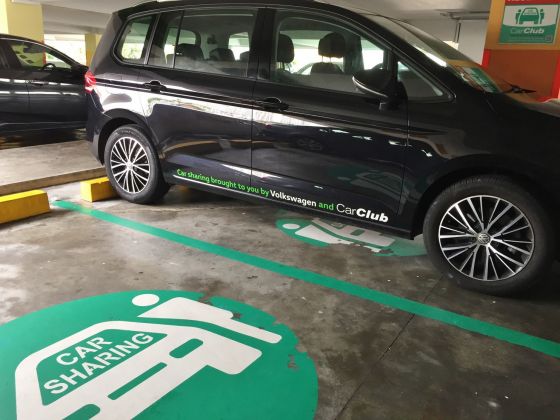The age of the shared economy is well and truly under way, what with travellers preferring to stay in Airbnb homes rather than hotels, bicycle-sharing becoming a popular mobility alternative; and private-hire services such as Grab or Uber favoured by many.
If the latest trends are anything to go by, alternatives to car ownership could very well be next. Locally, car ownership has reportedly dropped about 9 per cent since 2013, while the rental car population has more than doubled since then.
While some might point to the increasingly prohibitive cost of car ownership in Singapore as the reason for this, the move towards a shared proposition is also gaining traction.
It seems that the new generation of drivers is averse to big financial commitments, especially when most cars are considered depreciating assets and the rate of succession of new models has escalated to the point where there is always a newer, better model just a few months away. Which is where car sharing comes into the picture.
One car manufacturer that has gotten into car sharing in a big way is Audi, with its own programme dubbed Audi on demand+.
Through an app, the user is able to select from a range of Audi models and reserve the chosen car. Next, the user selects the date and time as well as the nearest collection point to pick up the car. Of course, there are other terms and conditions, but that is basically it.
Although this service is currently only available in Munich, San Francisco, Hong Kong and Beijing, local importer Audi Singapore is reviewing the feasibility of bringing the service here. So too is Audi’s parent company, Volkswagen (VW).
“A direct rental service is something we’re looking into as part of our future plans,” said Ricky Tay, managing director, Volkswagen Group Singapore.
The carmaker currently runs a rental service specially catered for weddings — couples can opt for the iconic Beetle or open-top Beetle Cabriolet, which come in the “Pure White” shade.
In the meantime, VW started a car-sharing initiative with Car Club in January. Car Club, an established operator which has been in the car-sharing business here for 20 years, features 52 Volkswagen cars such as the Polo, Golf, Jetta, Touran and Beetle, all of which are the latest models.
Car Club itself has 250 cars in its fleet, which can be accessed by signing up as a member for a fee. Rentals are charged by the hour or day, and drivers can even take the cars into Malaysia for an extra charge.
Bookings are made through the mobile app or website, and cars can be reserved from up 60 days in advance to even 15 minutes before collection, depending on availability.
Currently, there is only one Car Club station — in the multi-storey carpark next to Bishan’s Junction 8 shopping mall — exclusively dedicated to VW models, although Tay said they are “in discussions with Car Club to create a second dedicated satellite station for Volkswagen, and include more Volkswagen models in their fleet in the near future”.
“With the uncertain economic outlook, we understand that purchasing a vehicle may not be feasible for some people in the near future,” said Tay. “Yet at the same time, these people still require personal mobility solutions, especially those who travel together with their parents and young children.
“By partnering with Car Club, we are able to serve this group of people by providing high-quality, technologically advanced cars for their use as short-term car ownership,” he added.
Car-sharing rentals by the hour hover around S$11, and a day’s rental can set you back by at least S$110 per day, depending on the model you want. And that is not including your membership fees and other charges such as fuel.
However, some people, such as Daniel Tan, say it is still a viable option when the occasion arises. “My family and I usually take public transport,” he said. “But there was one time when we went shopping for furniture and instead of getting the delivery, we decided to rent a car instead.
“It made a difference because we didn’t have to wait for the delivery, we could bring the furniture back there and then. And the difference in the delivery fee was not that great.” Although some may say car-sharing will cannibalise car sales, Volkwagen’s Tay begged to differ.
“We do not feel that this is the case. Car-sharing is, after all, a stop-gap measure as a personal mobility solution — and there is no guarantee of renting an exact model, especially during peak periods such as festive seasons,” he said.
“For those who require the usage of a car on a regular basis, it is a lot more convenient to own one.”
Regardless, as the cost of car ownership increases, car-sharing options such as Car Club could offer the benefit of accessible personal mobility to those who only need a car occasionally, or to those are looking to try before they buy. ADDITIONAL TEXT BY CHRISTOPHER TOH
